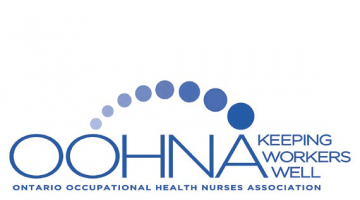Substance use and work
With the legalization of recreational cannabis in Canada, questions have been raised about patterns of cannabis use at work, the use of cannabis to treat work-related injuries, and the implications of such uses for work productivity, workplace health and safety and work disability management. IWH research examines these questions, as well as questions about the use and effectiveness of narcotics or opioids to treat pain, including pain associated with work injuries, and patterns of opioid-related harms among workers.
Featured

Research Highlights
Severe pain, not pressure to return to work or lack of accommodation offer, linked to opioid use post-injury
An IWH study found that among a group of injured workers in Ontario, those who experienced severe pain were more likely to use opioids than those who had no or only mild pain.
Published: February 12, 2025

Issue Briefing
Cannabis use by workers before and after legalization in Canada
Since 2018, when non-medical use of cannabis was legalized in Canada, a pair of Institute for Work & Health (IWH) studies was conducted to explore the implications of this change for workplaces. This briefing sums up their findings.
Published: December 5, 2024
IWH Speaker Series
IWH Speaker Series
The link between workplace injury and fatality risks and the use of substances affecting the central nervous system
Prescription and recreational drugs that act on the central nervous system can have many adverse effects, including cognitive and psychomotor impairment. An IWH systematic review has looked into the link between workplace injury and fatality risks and the use of such substances—including opioids, benzodiazepines and cannabis. In this presentation, Dr. Nancy Carnide shares findings from that systematic review.
Published: May 2019
Project
Project
Toking 9 to 5: Workplace cannabis use and perceptions among Canadian workers
An IWH research team is following up pre-legalization survey of workers about their use and perceptions of marijuana at work with a post-legalization survey that will determine if use patterns and perceptions have changed.
Status: Ongoing

IWH in the media
Canadians need to be educated on cannabis in the workplace, new study says
Research is limited on the impact marijuana use has on productivity and safety at work. Now, organizations need to revisit their employment policies. Sophie Nicholls Jones reports, with findings from IWH's study of at-work cannabis use and attitudes.
Published: CPA Canada, November 2018
IWH Speaker Series
IWH Speaker Series
Clearing the haze: Understanding how Canadian workers use and perceive cannabis at work
Recreational cannabis is now legal in Canada and many surveys suggest employers are concerned about the potential implications for workplaces. In this presentation, Dr. Nancy Carnide shares preliminary findings of a survey of workers, conducted in June 2018, aimed at understanding patterns of workplace cannabis use and the social norms and perceptions about such use.
Published: November 2018

At Work article
IWH review outlines promising strategies to prevent prescribed opioid abuse
Since the start of the opioid crisis in the late 1990s, communities across North America have tried many different strategies to curb the misuse and abuse of prescription opioids. A new IWH systematic review identifies the most promising ones.
Published: November 2018

IWH in the media
New systematic review outlines promising strategies to prevent prescribed opioid abuse, overdoses
The opioid epidemic continues to grow unabated across swaths of North America. A new systematic review by the Institute for Work & Health (IWH) now provides a comprehensive assessment of the strategies that have been tried to promote the appropriate use of opioid prescriptions, reduce their misuse and abuse, and prevent overdose deaths.
Published: OOHNA Journal, October 2018
Journal article
Journal article
Prescription dispensing patterns before and after a workers' compensation claim: an historical cohort study of workers with low back pain injuries in British Columbia
Published: Journal of Occupational and Environmental Medicine, July 2018
Journal article
Journal article
A systematic review of strategies to improve appropriate use of opioids and to reduce opioid use disorder and deaths from prescription opioids
Published: Canadian Journal of Pain, June 2018

IWH in the media
Opioids linked to longer disability leaves
A Canadian review of five studies have found a link between opioid prescriptions and longer duration of time on disability, writes Sarah Dobson, who interviews Dr. Nancy Carnide and Dr. Andrea Furlan, among others, about implications of this IWH study.
Published: Canadian HR Reporter, June 2018

IWH in the media
High at the helm: Workplaces preparing for cannabis legalization
Virtually nothing is known about why Canadians use cannabis on the job or how common it is for people to consume it at work, says the Institute for Work & Health's Dr. Nancy Carnide in this article on cannabis in the workplace.
Published: The Globe and Mail, April 2018